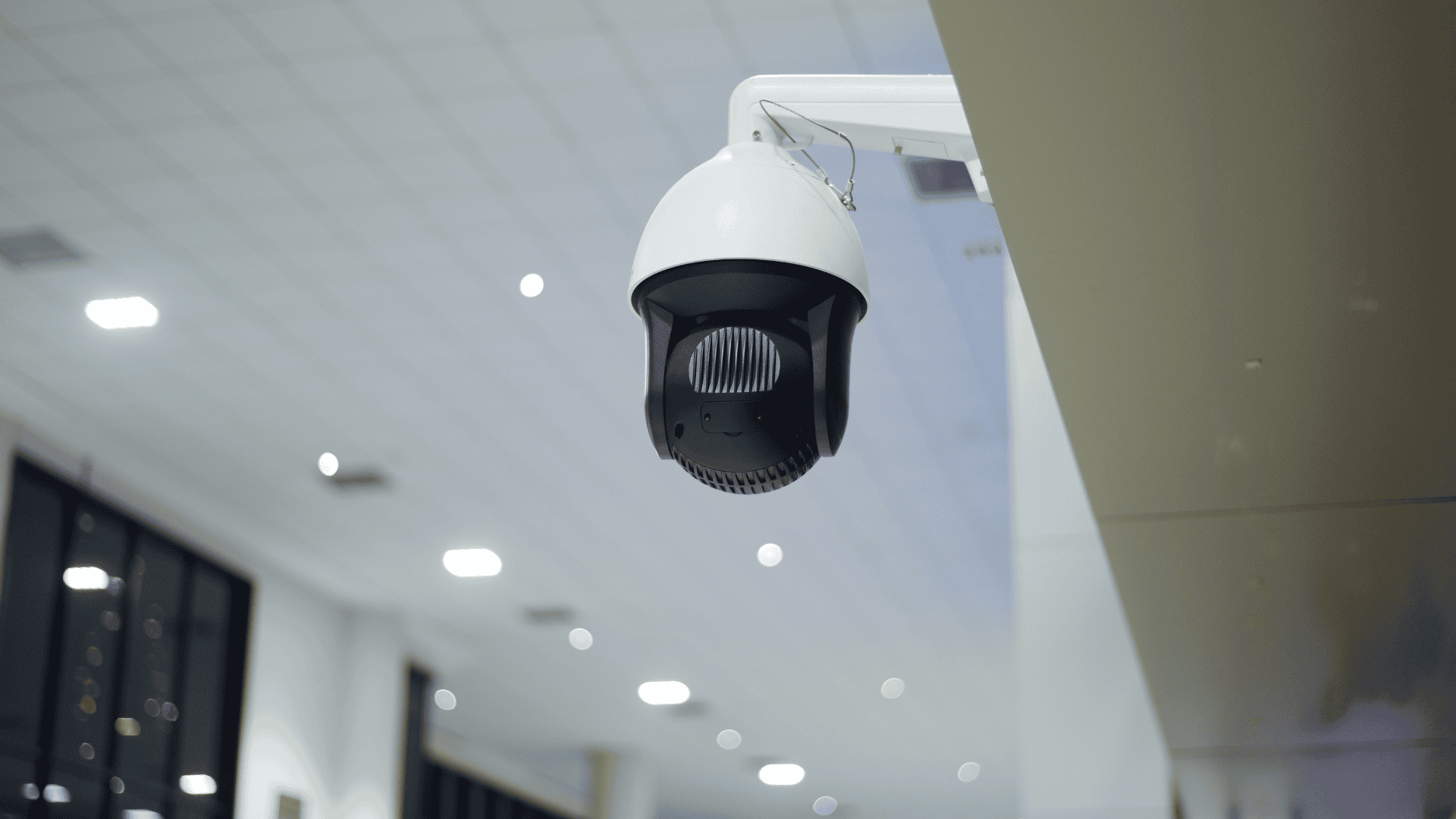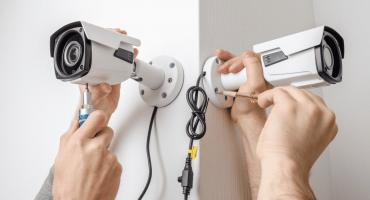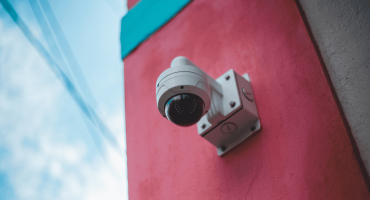In This article
Choosing the right security camera system is critical when protecting your home or business. With a wide array of technology available, determining which system best fits your needs can be challenging. Network video recorder (NVR) and digital video recorder (DVR) systems are two of the most popular options.
Each offers distinct advantages and requires different trade-offs and camera types. You must carefully evaluate the differences between NVR and DVR security cameras. This guide will help you compare NVR vs DVR cameras, explore how each system works, highlight their pros and cons, and help you determine which is best suited for your property or business.
What Is a DVR Security Camera System?
A DVR security camera system (Digital Video Recorder) is a more traditional surveillance system. These systems use analog cameras that send raw video footage to the DVR over coaxial cables. The DVR then processes and digitizes the video signals for storage.
Because DVR systems rely on analog technology, their resolution is typically lower than NVR systems. However, they remain a solid choice for basic, cost-effective surveillance and protection, particularly for businesses and homes with existing coaxial infrastructure.
What Is an NVR Security Camera System?
An NVR security camera system is a modern surveillance solution designed to work with Internet Protocol (IP) cameras. Unlike traditional systems, NVRs receive video footage digitally over a computer network. This means that each camera captures and processes video internally before sending it to the NVR for storage and access management.
NVR systems typically use Ethernet cables to transmit data and power, a technique known as Power over Ethernet (PoE). This not only simplifies installation but also reduces the amount of cabling required.
NVR security camera systems offer superior scalability and higher video resolution than DVR alternatives. These features make NVR systems popular choices to protect commercial environments, large properties, and “smart” homes.
Key Differences Between NVR and DVR Security Cameras
To determine which system best meets your security objectives, you must understand the differences between NVR and DVR security cameras. Here are the primary distinctions.
Video Quality
- NVR security camera systems support HD and even 4K resolutions, thanks to IP cameras.
- DVR security camera systems are typically limited in resolution, often maxing out at 1080p.
Installation Process
- NVR systems use Ethernet (Cat5/Cat6) cables, which can carry both power and data through PoE.
- DVR systems require coaxial cables and separate power supplies for each camera, leading to more complex and bulky setups.
Storage & Processing
- In NVR systems, the video is processed at the camera level, then streamed to the recorder.
- In DVR systems, all storage and processing management occurs at the recorder, which means DVR cameras can be simpler and less expensive than NVR cameras.
Remote Access & Flexibility
- NVR systems typically offer enhanced mobile access, cloud storage integration, faster, more flexible searches and reviews of video archives, and innovative features such as advanced analytics and AI-powered detection of humans, animals, and vehicles.
- DVR systems can support remote viewing, but often require port forwarding and more manual setup.
Pros and Cons of NVR Security Cameras
The pros and cons of NVR security cameras highlight why this system is often favored for modern security installations:
✅ Pros:
- Higher video resolution and image clarity with IP camera support.
- More flexible installation through PoE cabling.
- Better remote access with smartphone apps, smart home/building integration.
- Advanced AI-enabled features such as recognition of animals, faces, people, and vehicles.
❌ Cons:
- Higher upfront costs for both cameras and the recorder.
- Requires a strong and stable network infrastructure to ensure consistent performance.
NVRs are ideal for organizations looking for scalable systems with modern features, such as video analytics and integration with cloud platforms.
Pros and Cons of DVR Security Cameras
When considering the pros and cons of DVR security cameras, the focus is on affordability and simplicity.
✅ Pros:
- More budget-friendly, affordable for smaller businesses or home setups.
- Compatible with existing analog infrastructure, reducing upgrade costs.
- No internet dependency, making them reliable in areas with poor connectivity.
❌ Cons:
- Lower video quality may affect facial recognition, fine detail capture, or forensic value.
- Bulky wiring and limited scalability, especially when adding new cameras.
As Swann’s blog notes, DVR systems are well-suited for straightforward installations that don’t require high resolution or smart integration.
Choosing the Right System for Your Needs
When comparing NVR vs DVR cameras, your decision should be based on several practical considerations:
Budget
- If you’re cost-conscious and already have analog wiring, a DVR security camera system may be a better choice.
- If you’re willing to invest in a higher-end system with better long-term benefits, go with an NVR security camera system.
Scalability
- NVR systems are more scalable, making them ideal for growing businesses or large properties.
- DVR systems are more rigid due to their analog limitations.
Installation Complexity
- NVR with PoE is easier to install if you’re comfortable with DIY setups and want simpler cabling.
- DVRs require careful planning for power outlets and longer cable runs.
Storage and Quality Needs
- Need high-definition footage or remote monitoring? NVRs are the clear winner.
- Need basic, local-only footage without internet dependency? Choose DVRs.
Ideal Use Cases:
- Homeowners: NVRs for smart homes, DVRs for budget-conscious DIY setups.
- Small businesses: DVRs for local surveillance, NVRs for advanced monitoring.
- Enterprises or multi-location properties: NVRs with centralized, cloud-based storage and smart integrations.
Conclusion
There’s no one-size-fits-all answer in the debate of NVR vs DVR security cameras. Each system has its strengths and weaknesses. The NVR security camera system offers superior image quality, smarter features, and easier expansion, making it ideal for tech-savvy users and large-scale operations. The DVR security camera system is a practical, cost-effective solution for those with existing analog setups or basic surveillance needs.
Whether safeguarding your home, upgrading your business security, or planning a new installation, choosing the right system is crucial for peace of mind and protection. Understanding the differences between NVR and DVR security cameras will help you accurately evaluate the pros and cons of NVR security cameras and the pros and cons of DVR security cameras. You can then make a confident decision that aligns with your security goals, budget, and likely future scalability needs. Contact us to learn more or to schedule a demo.
Frequently Asked Questions About NVR and DVR Systems
Q: Can I mix NVR and DVR systems?
A: Not directly. NVRs work with IP cameras, while DVRs are designed for analog. Hybrid recorders are available, but setup may require technical assistance.
Q: Are NVRs worth the higher cost?
A: If you need features like smart detection, 4K resolution, or scalable cloud access, the investment in an NVR security camera system pays off.
Q: Do DVR systems work without the internet?
A: Yes. DVR security camera systems can function independently of the internet for local recording and monitoring.
Q: Which system is easier to install for beginners?
A: NVR systems using PoE are generally easier due to fewer cables and plug-and-play compatibility.





























